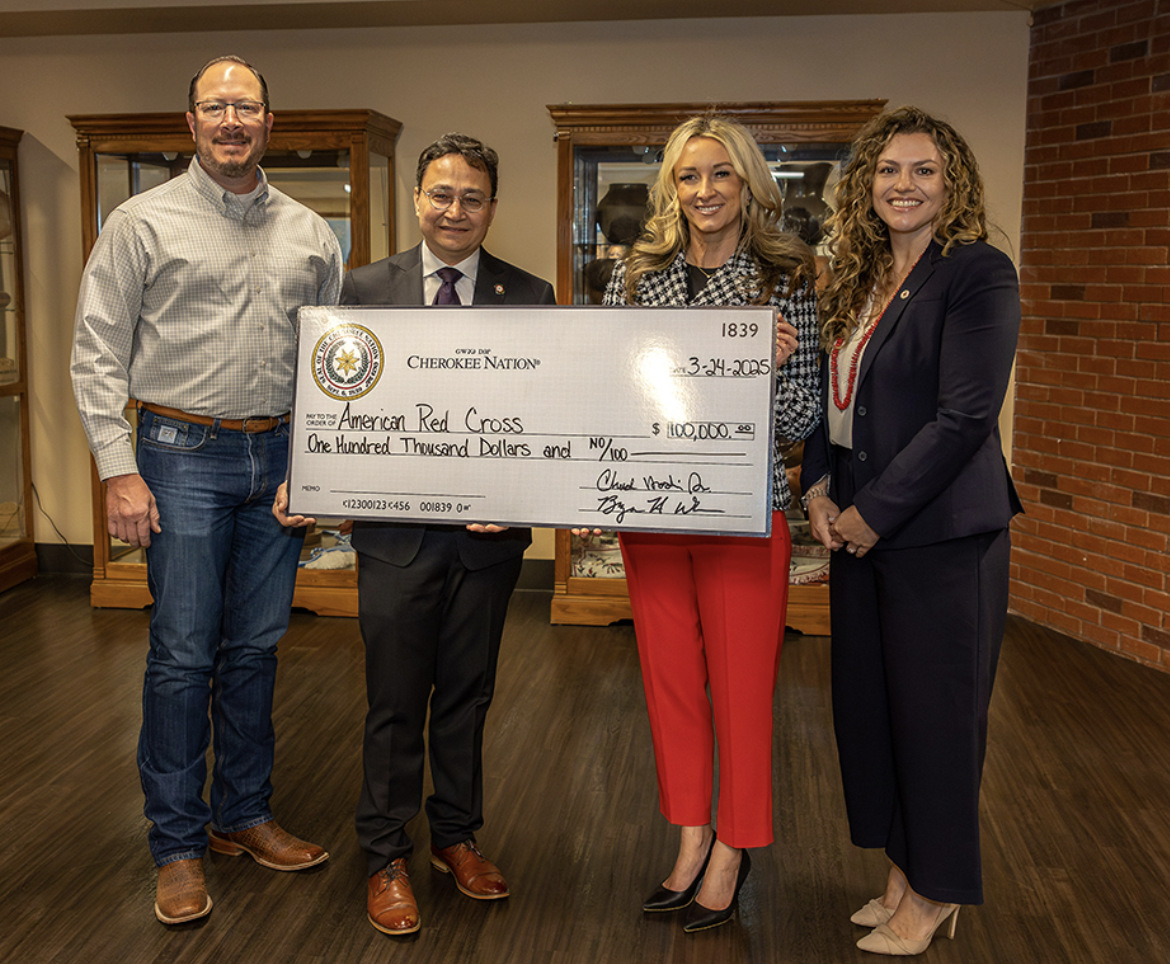
- Details
- By Native News Online Staff
The Cherokee Nation has contributed a $100,000 matching gift to the American Red Cross Disaster Relief, doubling private donations made to the organization on Monday.
“The American Red Cross helps families at their most vulnerable, stepping in after catastrophic events to bridge gaps between first responders and recovery efforts,” said Cherokee Nation Principal Chief Chuck Hoskin Jr. “Cherokee culture holds the idea of shared community well-being in high regard, imbued in the word ‘Gadugi.’ The Red Cross is an important partner, supporting Cherokees and our neighbors across the country when they need it most.”
Beyond disaster preparedness, relief, and recovery efforts, the Red Cross provides essential services such as blood collection, comfort kits for veterans, and more—helping over 25,000 people every day.
“Cherokee Nation and the Red Cross share a common mission to make our communities more resilient,” said Tralynna Scott, Cherokee Nation Businesses chief economist and Red Cross Tulsa-area board secretary. “Whether from widespread natural disasters or isolated house fires, Red Cross responds after tragedy to shelter displaced families and ease their path to recovery. Strong communities prioritize resiliency against inevitable setbacks. Red Cross is an invaluable partner to long-term community growth.”
As part of Red Cross Month, observed from March 1-31, the Cherokee Nation pledged to match donations up to $100,000 in support of disaster relief. During Cherokee Nation’s sponsored day, the Red Cross received more than $280,000 in private contributions.
“The American Red Cross is profoundly grateful for our partnership with the Cherokee Nation,” said Megan Haddock, American Red Cross regional chief executive officer. “Their generosity enables us to fulfill our mission of preventing and alleviating human suffering in times of crisis. Dedicated partners like the Cherokee Nation make a lasting impact on communities in need.”
More Stories Like This
Native News Weekly (August 25, 2024): D.C. BriefsNative Bidaské: The Illusion of Freedom and the Myth of America 250, Leonard Peltier Speaks Out
Monday Morning (March 2, 2026): Articles You May Have Missed This Past Weekend
Native News Weekly (March 1, 2026): D.C. Briefs
Scope Narrowed, Report Withheld: Questions Mount Over Michigan Boarding School Study
Help us defend tribal sovereignty.
At Native News Online, our mission is rooted in telling the stories that strengthen sovereignty and uplift Indigenous voices — not just at year’s end, but every single day.
Because of your generosity last year, we were able to keep our reporters on the ground in tribal communities, at national gatherings and in the halls of Congress — covering the issues that matter most to Indian Country: sovereignty, culture, education, health and economic opportunity.
That support sustained us through a tough year in 2025. Now, as we look to the year ahead, we need your help right now to ensure warrior journalism remains strong — reporting that defends tribal sovereignty, amplifies Native truth, and holds power accountable.
 The stakes couldn't be higher. Your support keeps Native voices heard, Native stories told and Native sovereignty defended.
The stakes couldn't be higher. Your support keeps Native voices heard, Native stories told and Native sovereignty defended.
Stand with Warrior Journalism today.
Levi Rickert (Potawatomi), Editor & Publisher


